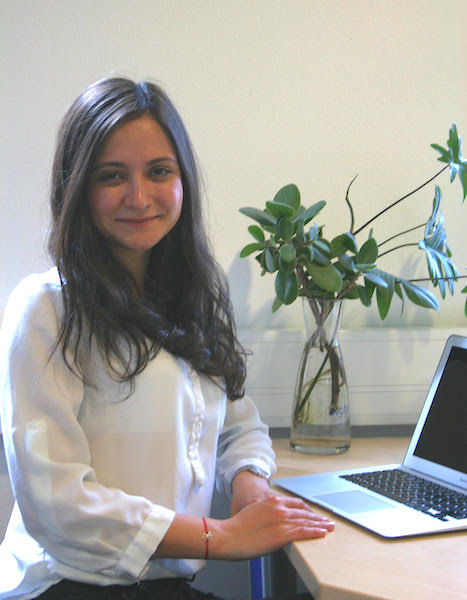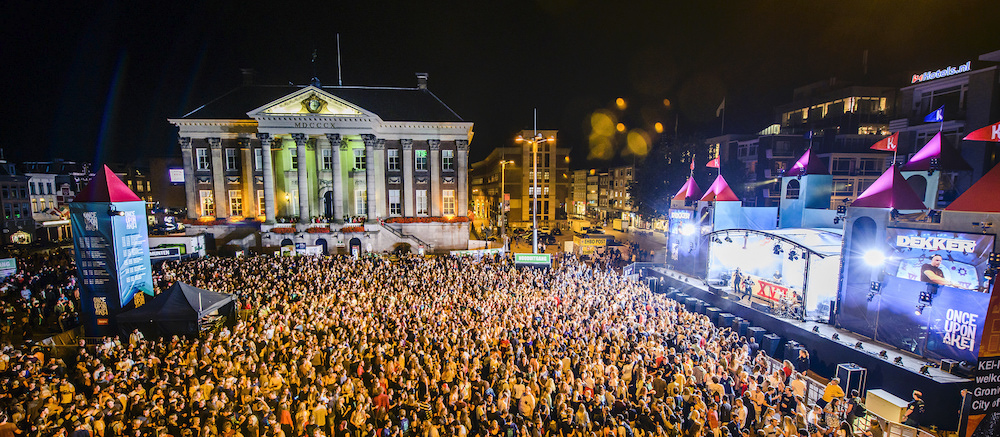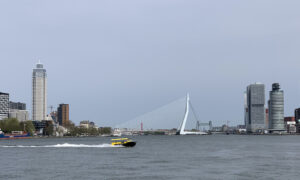(Editor’s note: Dispatches is all about the global mobility of talent and that includes students. Groningen University alumnus Andriana Boyrikova has the details about her alma mater – not just a great university, but a great city to be young and brilliant. And American students … you don’t have to pay $70,000 per year in tuition.)
Lively and progressive, the city of Groningen is an eclectic amalgam of youthful population, world-class education and thriving cultural scenes that will fulfill any student’s expectations of an exciting student life. Hailed “the youngest city in The Netherlands” due to the very high student population density – roughly 60,000 students – Groningen is a great place to get first-rate education and to make unforgettable memories.
The best student city in The Netherlands
In 2016, Groningen was officially crowned best student city in the Netherlands after cities were judged on nightlife and restaurants, cultural hotspots and student density. To the alums like me who have already had the time of their student life in Groningen, this comes as no surprise.
The reasons Groningen is at the top of the list are many, but let’s start with a montly budget estimate:
• Housing: 350 to 700 euros
• Groceries: 150 euros
• Public transport: 50 euros (if you live in the city)
• Going out and hobbies: 100 euros
• Insurance costs: 80 to 120 euros
I personally managed on 600 euros per month: It was a tight budget but enough to have a decent student life.
What does Groningen offer in return?
This buzzing city makes sure no student is left out in the cold:
• For the cultural and art enthusiasts: A boundless cultural scene with theatres, music venues, student culture centres, and Forum Groningen, the city’s landmark cultural centre which is home to the city’s tourist office, a library, five cinemas, exhibition spaces and more.
• For sport zealots: Top-notch sports facilities at ACLO, the biggest student sports organization in the Netherlands, with 49 student sport clubs and over 40 different sports including American football, ice skating, horseback riding and more.
• For arty people: A vibrant nightlife with more than 150 bars, most of which have no closing times or entry fees; pop venues that host about hundreds of electronic and urban performances each year; and KEI-week – the largest introduction week in the Netherlands that gathers a crowd of about 5,000 Dutch and international students.
• For music connoisseurs: Open-air festivals throughout the whole year including the popular Noorderzon Performing Arts Festival Groningen in the summer, which typically draws between 130,000 and 150,000 visitors; the annual Eurosonic, a showcase festival and music conference for European artists only, and Paradigm Festival.
For nature lovers: A silent retreat in one of the scenic city parks, hidden gardens, beautiful countryside, which is best explored on a bike, or Hoornsemeer recreational lake.
Housing
It is crucial to remember that if you decide to study in Groningen, you need to start looking for accommodation at least eight months in advance. Universities in the Netherlands don’t offer student housing, and it is a student’s responsibility to find a room.
As the number of rooms is limited, it is essential that you start looking for accommodation as soon as you know you’re going to attend.
(You can read more about student housing scams and issues here, which are endemic in the Netherlands.)
So, what about the school?
What about the quality of education? The University of Groningen is among the global elite of universities: It’s ranked No. 65 on the Academic Ranking of World Universities (Shanghai Ranking) list and No. 70 on the Times Higher Education World University Ranking list.
The University of Groningen has a rich academic tradition dating back to 1614, which makes it the country’s second-oldest university behind Leiden University. It is among the European top in the field of academic research. Its research profile focuses on three societal themes: Healthy aging, energy, and sustainable society.
The University offers more than 35 English-taught Bachelor’s degree programs; 120 Master’s degree programs, 18 of which top-rated; and PhD degree programs across 11 faculties.
Tuition
The tuition fees for non-EU/EEA students vary between 9.500 euros to 14,000 euros per year for Bachelor’s degree programs; 13,500 euros to 17,500 euros per year for Master’s degree programs; and 32,000 euros per year for the School of Medicine.
A few more things you need to know about Groningen
Groningen is one of the Netherlands’ most brilliant cycling cities. No less than 60 percent of all traffic movement in the city is by bike. That’s no wonder as bike lanes crisscross the whole city and everything in Groningen is within a bike ride distance.
The city scores high on health care, public space, and education. Besides that, locals are satisfied with air quality, sports and cultural facilities, and safety.
According to research, Groningers are the happiest in the whole country with their neighbors and fellow citizens and proud of their city. However, living in Groningen is not perfect. Rain and wind accompany every
season, and even a waterproof jacket and umbrella won’t keep you dry on your bike.
Following tradition, you will have your bike stolen at least once. Despite the fact almost everyone here can speak English, sometimes you will end up around Dutchies who – much to your surprise – won’t switch to English especially for you.
Studying in Groningen is a fantastic experience that will equip you with excellent education and ensure you make memories. But first and foremost, you should prepare to step outside your comfort zone.

About the author:
Andriana Boyrikova was born and raised in Pazardzhik, Bulgaria. Later, her adventure-seeking spirit brought her to Groningen, Netherlands, where she completed a master’s degree in journalism at the University of Groningen.
Following her graduation, Andriana decided to pursue her passion for telling stories and now she is working as a freelance content marketer, contributor, and writer in Groningen. Andriana is interested in high-tech innovations, sustainability, and women’s empowerment.














